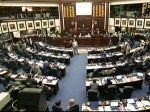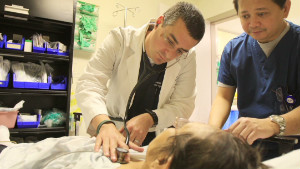Licensed healthcare providers and facilities (including many drug and alcohol recovery businesses) who enter into arrangements with clinical labs to provide services to their patients and who then wish to charge more for those lab services will be very disappointed to learn about the restrictions under Florida law.
Section 456.054, Florida Statutes prohibits “kickbacks” and reads—
(1) As used in this section, the term “kickback” means a remuneration or payment, by or on behalf of a provider of health care services or items, to any person as an incentive or inducement to refer patients for past or future services or items, when the payment is not tax deductible as an ordinary and necessary expense.
(2) It is unlawful for any health care provider or any provider of health care services to offer, pay, solicit, or receive a kickback, directly or indirectly, overtly or covertly, in cash or in kind, for referring or soliciting patients.
(3) Violations of this section shall be considered patient brokering and shall be punishable as provided in s. 817.505.
The issue involved in a provider or facility charging more for lab services than they were charged by the lab itself is that the prohibition above applies to healthcare providers and “any provider of healthcare services.” Regulators may find any reduced fee by the lab to constitute a kickback in exchange for a volume of patient referrals.
A related issue has to do with Florida insurance laws that pertain to charging more for an item or service than the provider or facility was charged. For instance, if Lab 1 charges the provider/facility $10 for lab work, and the provider/facility charges an insurer $20, that can be found to constitute insurance fraud.
The key Florida prohibition, however, is found in the Florida Administrative Code, which reads—
59A-7.037 Rebates Prohibited – Penalties.
(1) No owner, director, administrator, physician, surgeon, consultant, employee, organization, agency, representative, or person either directly or indirectly, shall pay or receive any commission, bonus, kickback, rebate or gratuity or engage in any split fee arrangement in any form whatsoever for the referral of a patient. Any violation of Rule 59A-7.037, F.A.C., by a clinical laboratory or administrator, physician, surgeon, consultant, employee, organization, agency, representative, or person acting on behalf of the clinical laboratory will result in action by the agency under Section 483.221, F.S., up to and including revocation of the license of the clinical laboratory. In the case of any party or individual not licensed by the agency acting in violation of this Rule, a fine not exceeding $1,000 shall be levied and, as applicable, the agency shall recommend that disciplinary action be taken by the entity responsible for licensure of such party or individual.
(2) No licensed practitioner of the healing arts or licensed facility is permitted to add to the price charged by any laboratory except for a service or handling charge representing a cost actually incurred as an item of expense. However, the licensed practitioner or licensed facility is entitled to fair compensation for all professional services rendered. The amount of the service or handling charge, if any, shall be set forth clearly in the bill to the patient.
(3) Each licensed laboratory shall develop a fee schedule for laboratory services which shall be available to the patient, the authorized person requesting the test or agency upon request and shall be subject to subsection 59A-7.037(2), F.A.C.
In this era where healthcare providers and facilities are struggling to hold onto dwindling profit margins, it is understandable why some are considering arrangements with clinical labs. Still, Florida providers and facilities have to be extremely cautious when entering into such arrangements.





 CNN Explains: Health care reform
CNN Explains: Health care reform